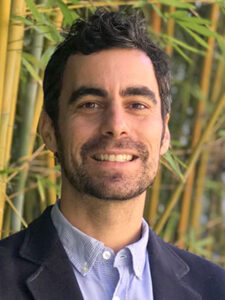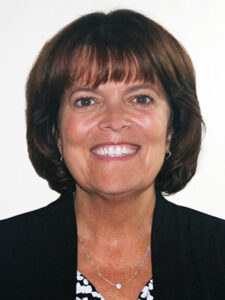Monday’s Oral Presentations session Innovative Diabetes Education Across Diverse Populations will feature a series of studies looking at self-management education strategies for patients as well as diabetes care education for community care workers, trainees, and primary care physicians. The two-hour session will begin at 4:30 p.m. in S-208 (South, Level 2). ADAMeetingNews.org talked to three of the presenting authors and asked them about their studies.
An Online Insulin Pump and CGM Curriculum for Trainees: TeKnO T1D
Brynn Marks, MD, Boston Children’s Hospital
Study Background
Dr. Marks: Despite the increasing use of insulin pumps and continuous glucose monitors (CGM) and research studies showing benefits to their use, mean A1C values have risen in recent years. I hypothesized that one modifiable factor contributing to this trend is suboptimal knowledge and education about insulin pump and CGM use among pediatric endocrinology trainees. I conducted a nationwide needs assessment survey of fellows and attending physicians. Although understanding of these technologies was universally perceived to be important for pediatric endocrinologists, just 15 percent of fellows reported receiving formal education about pumps and CGMs.
Objective/Methods
Dr. Marks: I used the results of the needs assessment survey to develop an online, case-based curriculum about the use of insulin pumps and CGMs in pediatric type 1 diabetes management—Technology Knowledge Optimization in Type 1 Diabetes (TeKnO T1D). TeKnO T1D includes two separate curricula, one focused on insulin pumps and one focused on CGMs. Questions are delivered using a commercially available, spaced education app that capitalizes on two well-known psychoeducational phenomena known to improve learning—the testing effect and the spacing effect. Fellows throughout the U.S. and Canada were recruited to participate and were then randomized to complete either the insulin pump or CGM curriculum. We used mixed methods to assess the impact of the TeKnO curriculum, assessing changes in knowledge through performance on multiple choice questions, changes in confidence through Likert scale items, and changes in clinical practice using free response items.
Leveraging the Project ECHO Model for Type 1 Diabetes (T1D) in California and Florida: Democratizing Knowledge in Underserved T1D Communities

Nicolas Cuttriss, MD, MPH, Stanford University
Study Background
Dr. Cuttriss: While recommendations are for patients with type 1 diabetes to see a diabetes specialist every three to four months, this too often does not happen. Diabetes specialty care is falling on primary care providers and community practices. Health disparities in type 1 diabetes exist throughout the lifespan and it is well documented that barriers exist that prevent patients with type 1 diabetes from receiving routine specialty diabetes care. The T1D Exchange national type 1 diabetes registry illustrates that only 25 percent of patients with type 1 diabetes at the nation’s top diabetes centers are meeting A1C targets.
Objective/Methods
Dr. Cuttriss: The purpose of this pilot program is to establish the feasibility of a Project ECHOTM (Extension for Community Healthcare Outcomes) model for T1D (ECHO T1D) that will democratize specialty knowledge in diabetes and improve care access for adults and pediatric patients with type 1 diabetes who do not receive routine care from endocrinologists. Utilizing a “Hub‑and‑Spoke” model, Stanford and the University of Florida Diabetes Institute recruited and partnered with primary care providers (PCPs) at non‑specialty diabetes practices across California and Florida and held weekly, hour-long teleECHO sessions consisting of didactic presentations and case reviews. Precision recruitment methods to target clinics in remote and medically underserved regions included geocoding to identify high‑need areas, claims data to identify PCPs treating type 1 diabetes, and survey data from PCPs.
The Feasibility and Acceptability of a Diabetes Survival Skills Intervention for Incarcerated Persons Transitioning to the Community

Louise A. Reagan, PhD, ANP, University of Connecticut
Study Background
Dr. Reagan: Among 10,000 incarcerated persons, the rate of diabetes is almost 50 percent higher than the general population when matched for sex, age, race, and Hispanic origin. Of these, 95 percent will re-enter the community and are at increased risk for unnecessary health-care costs related to their diabetes. Prevention is possible with self-management training and diabetes survival skills (DSS). Targeting care transitions, such as prison release for diabetes survival skills self-management education, could improve both short and long-term outcomes for vulnerable incarcerated persons.
Objective/Methods
Dr. Reagan: Community, evidenced-based Diabetes Self-Management Education (DSME) models have not been examined for feasibility, acceptability, or effectiveness among incarcerated persons transitioning to independent diabetes self-management. In a non-equivalent control group design with repeated measures, we examined the feasibility, acceptability, and preliminary effect of a six-week, one-hour per week DSS intervention on diabetes knowledge, distress, self-efficacy, and outcome expectancy for transitioning incarcerated males. Of the 92 participants, 40 completed the study.